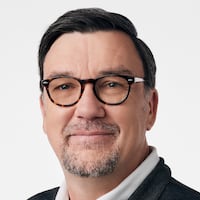Georgia Soccer, the dominant organizational group for the sport in the state, is trying to enhance its image and expand the number of participants in its organization.
The goal is to turn Atlanta into a soccer destination worthy of the biggest youth soccer tournament in the world, games featuring any of the U.S. national teams and potentially a team in Major League Soccer.
“One of the things we think about all the time is the better job we do making a bigger and better profile for soccer, the more the public will help and desire a franchise,” executive director Rick Skirvin said.
Georgia Soccer is moving quickly. For the first time it added two independent directors — Falcons chief marketing officer Jim Smith and international corporate attorney Scott Moran — to its board in January with the goal of adding a fresh set of ideas.
Smith’s involvement is independent from Falcons owner Arthur Blank, who has expressed an interest in helping Atlanta obtain an MLS team. Before joining the Falcons, Smith was the president and general manager of the Columbus Crew in MLS. He grew up playing the sport and tried to walk on at Northwestern.
As a soccer fan and marketing expert, Smith sees how helping Georgia Soccer improve its image can help the city join MLS, which repeatedly has said it likes the Atlanta market and wants to have a presence in the Southeast. Smith was given the task of helping Georgia Soccer increase its adult membership.
Skirvin estimates there are at least 25,000 adults playing soccer in leagues throughout the state. Only 4,500 are registered with Georgia Soccer, which is 100,000 strong.
The adult market is important because not only do some of them play, but their children play as well. Two target demographics with disposable income could be hit: parents and people who exercise.
“If we can grow an adult market, we’re better positioned to grow soccer down the road,” Smith said.
Skirvin and Smith believe Georgia Soccer’s fees are the biggest hurdle. The organization charges $24 per adult. The fee covers insurance ($9.50) with $2 going to the U.S. Soccer Federation, $3.50 to the U.S. Adult Soccer Association, and the remaining $9 going to Georgia Soccer, which is a non-profit organization. Their balance helps pay referees, secure fields and pay other administrative costs. Last year, for example, Georgia Soccer spent $100,000 helping Atlanta and the United States in a failed World Cup bid.
There are two sizeable groups that aren’t members of Georgia Soccer: the Atlanta Silverbacks and the Latino leagues, some of which form and disband quickly.
Silverbacks president Michael Oki said he appreciates the purpose of Georgia Soccer, but the expense of belonging is cost-prohibitive for the more than 200 teams that compete in their seven-on-seven leagues. The Silverbacks charge as much as $750 per team for a nine-game season and don’t offer insurance.
“Without the additional fees of affiliating our league with Georgia Soccer, [Silverbacks Park] already incurs significant losses on an annual basis,” Oki said in an email. “Moreover, we feel that the cost of affiliating players does not provide enough benefits at this time.”
The two groups have worked together, but haven’t found a solution. Smith and his committee have recommended that Georgia Soccer reduce its fee for adults, which would help the Silverbacks and the other groups. Skirvin said they are considering that suggestion.
“Does it take nine dollars for us to provide services? Not anymore. It costs less,” Skirvin said. He said the target range for fees is around $11, if they can find a way to reduce the cost of insurance. “We think we could grow soccer everywhere with less stress on our existing members.”
In an attempt to grow the youth side, which represents 80 percent of its membership, Georgia Soccer also is reaching out to Upward Sports and other church-affiliated youth leagues that aren’t members. This fall it will collaborate with an Upward league in Stockbridge that Skirvin hopes can be a model for future relationships.
“The fees are less important, but we want more participation and more kids playing soccer,” he said.
Georgia Soccer recently adopted a new logo and motto, “Your state. Your game.” It has added a Facebook page and is working on an app for mobile devices.
It also works with the Atlanta Soccer Cabinet, a group of CEOs of Atlanta-based businesses who are trying to use soccer to grow their companies. One of their mutual goals is to grow the Atlanta Cup from the 650-700 teams that have played the past few years to 1,200 by 2020, which would make it one of the larger amateur tournaments in the world.
Despite these efforts, there still are more significant hurdles that must be cleared if Atlanta is to one-day host a MLS team. An ownership group must step forward and a stadium must be built.
Skirvin said that Georgia Soccer has done everything it can to this point to grow the game and help bring a team. If they succeed in their mission of increasing membership and raising the sport’s profile, it can only help. “You can’t talk about promoting the game without the pro game,” he said.




